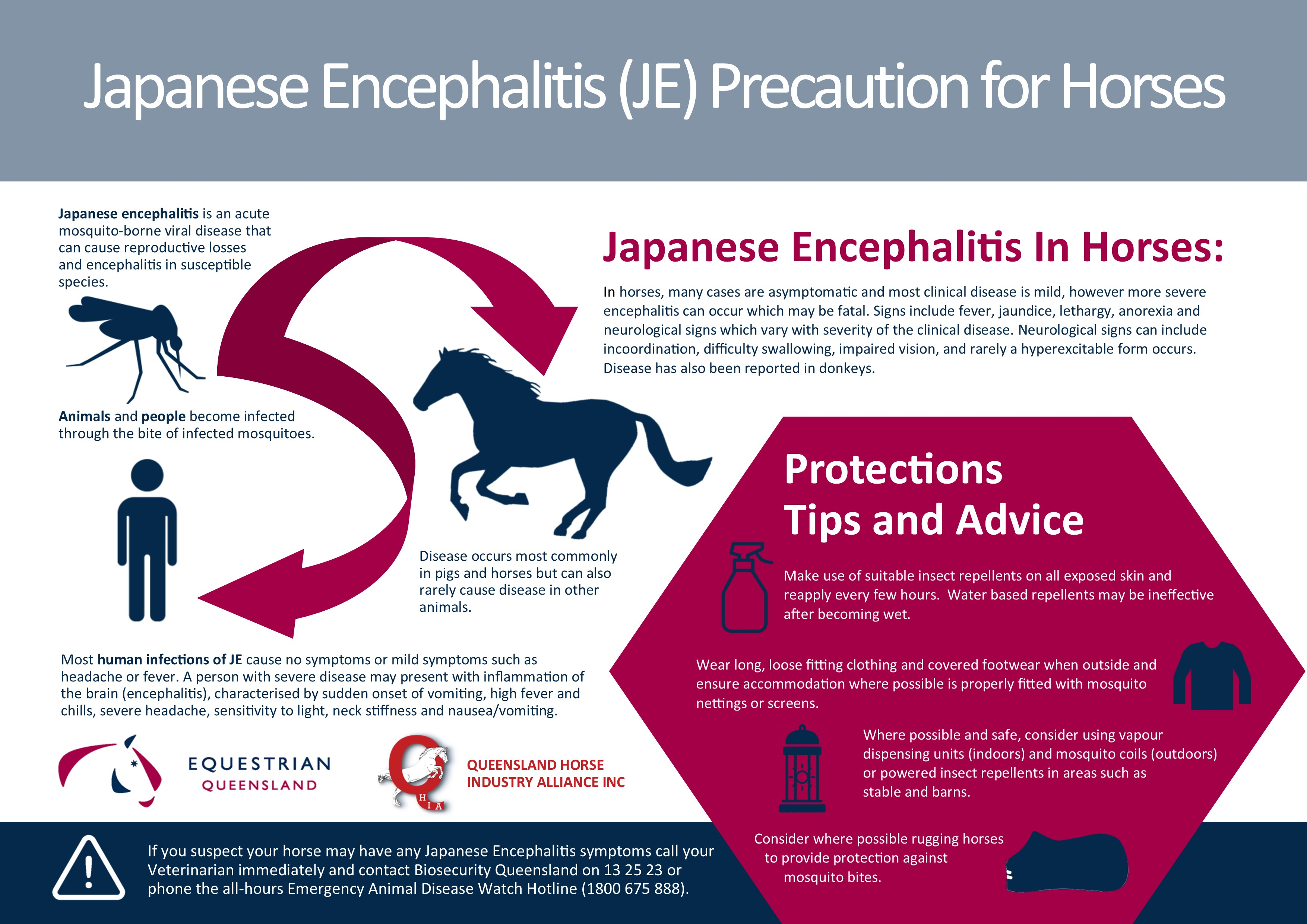
Japanese Encephalitis (JE) Precaution for Horses
Recently Biosecurity Queensland and Queensland Heath have issued alerts for Japanese Encephalitis (JE) following detection of cases at piggeries in Queensland, NSW, South Australia and Victoria.
What is Japanese Encephalitis?
Japanese encephalitis is an acute mosquito-borne viral disease that can cause reproductive losses and encephalitis in susceptible species. Disease occurs most commonly in pigs and horses but can also rarely cause disease in other animals.
Animals and people become infected through the bite of infected mosquitoes. The disease is maintained and spread through transmission cycles between mosquitoes and some wild and domestic bird species and pigs. There is no risk to humans from eating pig meat.
Japanese Encephalitis In Horses:
In horses, many cases are asymptomatic and most clinical disease is mild, however more severe encephalitis can occur which may be fatal. Signs include fever, jaundice, lethargy, anorexia and neurological signs which vary with severity of the clinical disease. Neurological signs can include incoordination, difficulty swallowing, impaired vision, and rarely a hyperexcitable form occurs. Disease has also been reported in donkeys.
Japanese Encephalitis in People:
Japanese encephalitis is transmitted to humans through infected mosquitoes. Most human infections of JE cause no symptoms or mild symptoms such as headache or fever. A person with severe disease may present with inflammation of the brain (encephalitis), characterised by sudden onset of vomiting, high fever and chills, severe headache, sensitivity to light, neck stiffness and nausea/vomiting. Children aged under five years of age and older people who are infected with JE are at a higher risk of developing more severe illness.
Protections, Tips and Advice
- Make use of suitable insect repellents on all exposed skin and reapply every few hours. Water based repellents may ineffective after becoming wet.
- Wear long, loose fitting clothing and covered footwear when outside and ensure accommodation where possible is properly fitted with mosquito nettings or screens.
- Where possible and safe, consider using vapour dispensing units (indoors) and mosquito coils (outdoors) or powered insect repellents in areas such as stable and barns.
- Consider where possible rugging horses to provide protection against mosquito bites.
Actions to take if you suspect Japanese encephalitis in your animals
Japanese encephalitis is a notifiable disease in Queensland. If you suspect Japanese encephalitis in any animal, immediately contact Biosecurity Queensland on 13 25 23 or phone the all-hours Emergency Animal Disease Watch Hotline (1800 675 888) and contact your veterinarian.










